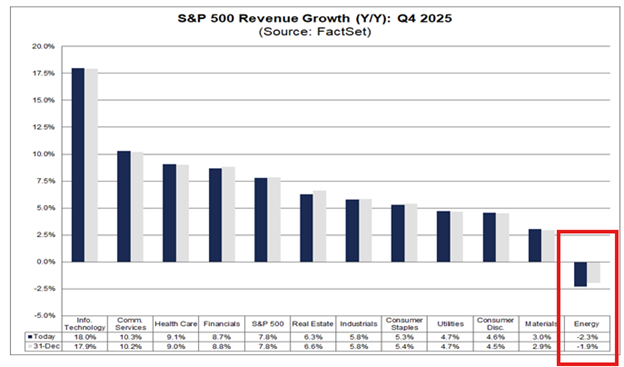The German economy was once a global industrial powerhouse, showing a strong resilience in times of crisis as well as significant productive growth in periods of expansion.
Germany displayed robust industrial activity, solid productivity, and enviably low unemployment levels, which added to real high wages. However, in the past five years the economy has stagnated, and its GDP is 5% smaller than the pre-pandemic growth trend suggested, according to Bloomberg Economics. Even more worryingly, they estimate that four percentage points of that loss may be permanent.
Most analyses blame the weakness of the German economy on higher energy costs and the Chinese slowdown affecting its exports. However, the reality is more complex.
Germany’s stagnation is self-inflicted.
Germany made its first big mistake in 2012, when its leaders accepted the left-wing diagnosis of the European debt crisis, which blamed all problems on nonexistent austerity. Germany embraced inflationism and, in 2014, agreed to the same monetary and interventionist policies that have always destroyed Europe. The German government and the Bundesbank reluctantly agreed to massive ECB monetary expansion and negative nominal rates while allowing the European Commission to abandon its oversight of excessive indebtedness and signing off on back-to-back “stimulus” packages like the Juncker Plan or the Next Generation EU disasters, all of which have left the euro area in stagnation, with more debt and now, inflation. Germans suffer a cumulative inflation of more than 20% in the past five years. Politicians blame it on Ukraine and Putin, but we all know it is a ludicrous excuse. Money supply growth and constant increases in government spending have obliterated the purchasing power of the euro and fueled inflation. “An upsurge in money growth preceded the inflation flare-up, and countries with stronger money growth saw markedly higher inflation” (Borio et al., 2023).
Keynesians believed that a weaker euro would boost Germany’s exports, but this is a myth. Export leaders rise thanks to high added value, not low cost. In any case, all the interventionist policies adopted by the European Union would leave a weak currency and an even weaker economy.
The second lethal mistake was its energy policy. High energy costs are not inevitable. They come from the misguided energy policy that drove German politicians to shut down their nuclear fleet and spend more than 200 billion euros subsidizing volatile and intermittent technologies only to perpetuate the use of coal and lignite, which accounts for 25% of its power production, according to AGEB 2024. In fact, 77% of its energy consumption and 40% of its power production come from fossil fuels. German politicians also embraced the EU agenda that banned the development of domestic natural gas but multiplied the imports of US liquefied natural gas produced from fracking. Fascinating. Furthermore, the enormous subsidies and regulated costs added to consumer bills have made it so that more than 60% of the electricity price paid by consumers comes from regulated costs and taxes, including the CO2 cost, which is a hidden tax. Germans pay more for energy and still depend on fossil fuels because the government destroyed its access to cheap Russian natural gas and replaced it with expensive and unreliable options. Only a group of politicians can decide to enter an energy war and ban the alternatives.
The third fatal mistake was to swallow the increasingly damaging policies coming from the EU Commission and the EU Parliament. A slowdown of the Chinese economy does not take a global export leader to stagnation, especially when the Asian giant is growing at 5% per year. A global export leader like Germany was rightly proud of a productive network that allowed its industry to grow thanks to high added-value products, technology, and a global reach that made German companies sell all over the world and navigate any macroeconomic environment. What made the once-mighty German industry stagnate and decline despite robust global growth was the combination of excessive regulation, disincentives to innovation, elevated taxes, and embracing the disastrous 2030 agenda that bans combustion engine vehicles. Politicians demolished the sales potential of the entire industrial complex with a misguided environmental and regulatory policy. Activists used the seemingly innocent 2030 agenda to impose an interventionist and unproductive model, obliterating all of Germany’s industries and farming and agriculture sectors. The wrongly named Nature Restoration Law, which makes it nearly impossible to conduct primary sector activities, further compounded this damage.
The European Union’s gradual imposition of excessive regulation and disincentives has also resulted in Germany losing a significant portion of its technological leadership. Germany’s engineering and technology dominance was based on an open, highly competitive, and rewarding system that has been destroyed by bureaucracy and regulation. Germany is a global leader in patent applications but lags the United States, and the translation of patents to businesses is exceedingly poor.
German politicians say that all the above challenges will become strengths in the future. I doubt it, because their track record of prediction failures is spectacular. What Germany needs is to abandon inflationism, interventionism, and comic-book activism. If Germany adopts these changes, its economy will experience significant growth.
Germany does not have a competitiveness or human capital problem; it has a political problem. Abandon socialist interventionism, and Germany will be back to its trend of growth and leadership.
Full story here Are you the author? Previous post See more for Next postTags: Featured,newsletter

























